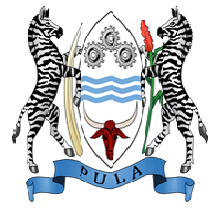Formerly the British protectorate of Bechuanaland, Botswana adopted its new name at independence in 1966. More than four decades of uninterrupted civilian leadership, progressive social policies, and significant capital investment have created one of the most stable economies in Africa. The ruling Botswana Democratic Party has won every election since independence; President Ian KHAMA was reelected for a second term in 2014. Mineral extraction, principally diamond mining, dominates economic activity, though tourism is a growing sector due to the country's conservation practices and extensive nature preserves. Botswana has one of the world's highest known rates of HIV/AIDS infection, but also one of Africa's most progressive and comprehensive programs for dealing with the disease.
Botswana is a parliamentary republic.
Source: CIA World Factbook
Members:
Resources
Displaying 56 - 57 of 57Town and Country Planning (General Development) Order, 1980 (Chapter 32:09).
The Order (22 articles, 2 Schedules) regulates the application and granting of planning permissions. Planning permission means the permission required under Part IV of the principal Act for any development of land carried out in a planning area. The two Schedules contain the classification of developments (first) and fees (second).
Implements: Town and Country Planning Act (Chapter 32:09). (2008-12-31)
Repealed by: Town and Country Planning (General Development) Order, 2014 (S.I. No. 51 of 2014). (2014-04-22)
Town and Country (Declaration of Planning Areas) Order, 1980 (Chapter 32:09).
The Order, which contains 4 articles and a Schedule, declares the areas specified in the Schedule as planning areas for the purposes of the principal Act. The Order also prescribes some procedural requirements for the application for a development permission.
Implements: Town and Country Planning Act (Chapter 32:09). (2008-12-31)


